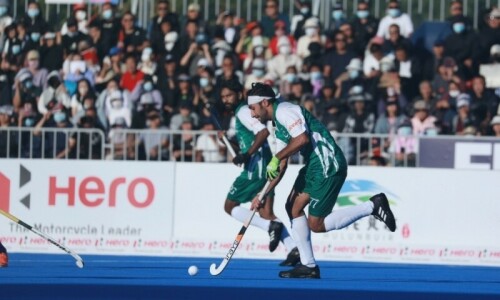Till late 90s, inland fishery in Pakistan was a reliable source of income for millions of fishermen and thousands of people involved in ancillary fish food business.
The inland fisheries sources in Sindh comprise nearly 1209 water bodies in the form of rivers, canals, barrages, lakes, and streams. The fast shrinking fish stock in different natural water bodies due to a variety of reasons including depleting freshwater flows has hit the livelihood of thousands of local fishermen. A large number of fishermen have been rendered jobless in Shahdadkot, Sukkur, Khairpur, Larkana, Thatta and Badin districts.
Covering about 8.6 million hectres of rivers, streams, canals and drains, dams, waterlogged areas, lakes and fish farms, the inland fishery engages nearly 74,286 fishermen in the province with 24,811 of them part time. It includes 168 fish farms with an area of 28,000 hectares, according to the Federal Bureau of Statistics (FBS) reports.
The fish farms are either natural depressions in waterlogged areas or excavations filled with water, whereas, pond management is minimal and their yield poor from constructed ponds. Therefore, average annual fish production is about 1500-2500 kilogram per hectare, according to an ADB study on the Sindh's inland fisheries.
Provincial fisheries officials told this scribe there are about 200 species of fish but out of them only 35 have commercial values such as Palla, Rohu, Dahi, Mori, Thaila, Mundha/Shakur, Grass carp, Silver carp, Common carp (Gulfam), Khagga, Seengara, Dyo (tilapia), Jarko, Suhni, Jarko, etc.
Lack of investment, and insufficient government support, and low technical know-how among officials of fisheries department are serious bottlenecks in the growth of the inland fisheries.
Naseer Memon, an expert on freshwater resources, says “absence of pro-fishermen policies, notorious contract system, informal credit channels, poor market facilities and degradation of water quality in rivers, ponds and lakes are among key issues confronting inland fisheries.”
Pakistan Fisherfolk Forum (PFF) spokesman, Saami Memon lists serious issues which need to be resolved including over-fishing, use of dangerous fishing nets, falling level of downstream flows in rivers, insufficient institutional and infrastructural facilities, paucity of skilled and trained manpower, shortage of quality fish seed, non-availability of modern fishing gears, rising aquatic toxicity, shortage of proper storage and marketing facilities and inadequate extension facilities as other serious issues.
The lakes' systems in Sindh, which account for more than 70 per cent of total freshwater fish catch, have been polluted by unchecked seepages/spillages and decreasing water flows from River Indus.
For instance, Manchar Lake in Dadu district has been devastated by an ill-conceived World-Bank-funded Right Bank Outfall Drain (RBOD) project. Haleji Lake in Thatta district is suffering from negligence and poor maintenance,” Naseer Memon remarked and added, “Brackish water lakes in Badin district in lower Sindh have also been ruined by the Left Bank Outfall Drain (LBOD) project and some other lakes are on the brink of falling prey to untreated sewerage water, industrial waste discharge, agriculture effluents and other kind of different pollutions.”
Many of the large freshwater lakes in the province have dried up, while some others are on the verge of extinction due to falling water inflows and rising water-logging, salinity and pollutions.
About 30 lakes managed by the provincial forest department have either dried up due to lack of water supply from canals or have become polluted, revealed a fisheries department official.
“Given the situation, these water bodies do not provide a healthy environment sustainable for growth of fish species, which have depleted pretty quickly,” said a Thatta-based freshwater fishery conservationist associated with IUCN-Pakistan.
Contract system enforced on all water bodies across the province is another major problem. This has drawn severe criticism from different civil society organisations including WWF-Pakistan, IUCN-Pakistan, PFF, Oxfam-Pakistan, Actionaid-Pakistan, and All Pakistan Lawyers Association.
Tahir Qureshi of IUCN-Pakistan argues “Leasing out the water bodies for fishing to the influential contractors has not only deprived thousands of indigenous fishermen of their inherent fishing rights but also jeopardised their very source of livelihood.”
More appallingly, this contract system has emptied the inland fisheries of their fish stocks because those, who have been awarded the fishing contracts not only forcibly prevent indigenous fishermen from fishing but also carry out fishing throughout the year and use dangerous prohibited nets in which even seeds and eggs of the fish as well as tiny fish get caught, says Sikander Brohi, director Policy Development Initiative (PDI).
In his budget 2008-09 speech, Sindh Chief Minister Qaim Ali Shah termed the contract system an exploitation of the fishermen. But no action has been taken to provide remedy to fishermen. Environmentalist Naseer Memon wants an end to the contract system.
Meanwhile some efforts are being made by the Sindh government to improve things. A three-year Rs500 million 'inland finishing and shrimp farming' project has been approved this fiscal year and is being implemented through Rural Support Programmes (RSPs).
An official in the livestock and fisheries section of the Sindh planning and development department told this scribe that this programme had been designed to increase income of local fishermen boosting development of inland fisheries.
“An amount of Rs100 million has been released to the provincial livestock and fisheries department for initiating work on the project, while Rs400 million will be released during next two years because the project is targeted to conclude on May 30, 2012,” the official sources explained.














































Dear visitor, the comments section is undergoing an overhaul and will return soon.